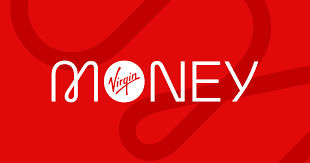Packaged bank accounts are current accounts bundled with additional services like insurance and breakdown cover provided at a price lower than subscribing to each service individually.
As most traditional banks, online banks and fintech providers offer packaged bank accounts, with different perks and benefits, there is an overwhelmingly large number of options to choose from.
Best Packaged Bank Accounts – Our Top Picks
| Name | Score | Visit | Disclaimer | |
|---|---|---|---|---|
 | 8.0 | Visituk.virginmoney.com | ||
 | 8.5 | Visitrevolut.com |
The Best Packaged Bank Accounts Reviewed
To kick things off, let’s have a closer look at each of these options and see what makes them good enough to be a part of our recommendations list.
Best packaged bank accounts at a glance
Best overall – Virgin Money Club M Account
Best range of features – Revolut Premium & Metal
Best for saving – Monzo Premium Account
Best for using abroad – Nationwide FlexPlus
Best for overdraft – Co-operative Everyday Extra
Best cashback and rewards program – NatWest Reward Platinum

Virgin Money Club M is our best overall pick, simply because it ticks all of our boxes for a good packaged bank account.
At £12.50, Club M is affordable and provides great insurance coverage, perfect for using it while you are abroad. It doesn’t have too many fees and has acceptable overdraft interest rates. In addition to this, the platform pays excellent interest rates on your savings.
I found Virgin Money Club M to be one of the best all-rounders. I get peace of mind while travelling, plus solid interest on my savings—all for a reasonable monthly fee. It really feels like good value.
The number of negative customer reviews on Virgin Money online can potentially be concerning, though the number of reviewers is too small to indicate a serious problem.
Pros
- Excellent insurance coverage
- 2.02% AER saving interest rates
- No fees when spending or withdrawing abroad
- Arranged overdraft available
Cons
- Interest paid for the first £1,000 only
- Breakdown insurance only covers the UK
- Concerning online reviews by customers
- Low withdrawal limit

Far from your typical packaged bank account, Revolut is the wildcard in our selection. We included two different account tiers, Premium and Metal, both of which are cheaper than the remaining five on our list.
Besides providing budget flexibility, there are some unique features included in these plans, like the Revolut <18 kids’ bank account access, as well as crypto and precious metals trading capabilities.
I like Revolut when I want flexibility without overpaying. It’s modern, easy to use, and great for digital-savvy users—especially if you're into crypto or sending money abroad.
Of course, the Revolut packaged accounts offer insurance and saving with interest rates features, but they are subpar compared to some of the competitors in our list. Opt for Revolut if you are looking for something different.
Pros
- Free instant transfers to other Revolut users, globally
- Access to multiple Revolut <18 accounts, for young people aged 6-17
- No fees for currency exchange
- Access to crypto and precious metal trading
Cons
- Overdraft not available
- No interest paid on balances
- International card transfer and currency exchange fees
- Cashback only available on Metal

Monzo’s take on packaged bank accounts is simply called Premium and comes at a monthly subscription price of £15.
Besides the standard insurance coverage included in most packaged plans, it offers a few unique features, like budgeting tools and free credit score updates, cash deposits, and rounding up to £1 when making payments and putting the change in a savings pot.
I enjoy Monzo’s savings pots and budgeting tools—they’ve genuinely helped me stay on top of my finances. It’s perfect if you like clear money management in one place.
Monzo Premium will grow your savings up to £2,000 at a 1.5% AER which is undoubtedly better than what the competitors we reviewed are offering.
However, paying £4.75 extra for breakdown insurance might be frustrating to some.
Pros
- Round up savings
- Advanced budgeting features and monthly credit score updates
- Five Free cash deposits per month
- 1.5% AER interest rates on savings up to £2,000
Cons
- Users have to commit to a six-month subscription
- Narrow age restrictions of travel insurance
- Requires paying an extra £4.75 for breakdown coverage
- Foreign currency fees are low, but there are free alternatives

For a competitive price of only £13 per month, Nationwide’s FlexPlus packaged account does many things right. Its insurance coverage is on par with the more expensive alternatives, it’s ideal for use abroad, and there aren’t many potential fees associated with it.
When I travel, I rely on FlexPlus. No foreign fees and good insurance make it hassle-free, though I do wish it had more rewards or savings features.
Where it falls short is the travel insurance age restrictions that limit the eligibility of users up to 70 years old. Additionally, the lack of savings features and rewards programs is slightly disappointing as well. Nationwide has a cashback promo at the time of writing, but it’s time-limited, while most competitors have a permanent way of giving back to the account holder.
For more flexibility while travelling, consider multicurrency accounts to time your conversions and make the exchange rates work for you. We also list the best US dollar and euro accounts for UK residents.
Pros
- Great insurance coverage
- No foreign currency fees
- No fees for foreign purchases or withdrawals
- Arranged overdraft available
Cons
- Significant overdraft interest rate
- No interest paid on balances
- Cashback is time-limited
- Narrow age restrictions of travel insurance

A couple of things stand out when looking at the Co-operative Everyday Extra packaged bank account. It’s the only option on our list to have an overdraft interest rate lower than 39%, and users with joint bank accounts get insurance benefits for the price of one.
What I appreciate most is the joint account benefits—it covers both of us without extra cost. Plus, the capped overdraft fees are a real bonus.
Additionally, its age eligibility requirements are quite lenient and, unlike most competitors, accept users up to 79 years of age. Unfortunately, the fees associated with foreign currency usage make it far from ideal for spending abroad, so it’s not the best option for travelling, even though it has one of the best insurance programs.
Pros
- Arranged overdraft available
- Overdraft fee capped at £60
- Joint accounts get the benefits for two people for one monthly fee
- Highest age limit on travel insurance
Cons
- Too many foreign currency fees, not ideal for using abroad
- Low ATM withdrawal limits
- No interest paid on balances
- Earning cashback has requirements but is limited up to £2.20 per month

At £20 per month, NatWest’s Reward Platinum packaged bank account is the most expensive option on our list. Its users can choose to spend their monthly £5 to reduce their subscription fee to £15 or use it to get valuable discounts related to travel.
However, the rewards program is a separate benefit, and users are still able to get cashback on purchases at selected retailers.
I use NatWest for the rewards—it’s pricey, but if you take advantage of the cashback and discounts, it can pay for itself over time.
Furthermore, NatWest Reward Platinum gives you access to the standard travel and mobile phone insurance included with most packaged bank accounts and provides you with fee-free spending abroad.
That being said, much more should be included for the hefty price of £20 per month, or at least a good interest rate on savings.
Pros
- Up to £5 per month back in rewards
- Discounts with selected retailers
- No fees for spending abroad
- Great insurance coverage
Cons
- Costlier than its competition
- No interest paid on user’s balance
- Too many additional charges for a £20/month service
- Concerning customer reviews
How We Rate and Review The Best Packaged Bank Accounts
An abundance of packaged bank accounts is available out there, and picking the right option can be tricky, particularly because most of them offer similar benefits.
Obviously, no offer can be the clear winner, as preferences differ from one user to the next.
However, these are the primary six criteria we base our ratings on:
Regulation – We only consider packaged bank accounts offered by providers that are properly regulated by the appropriate authoritative bodies to ensure safety and fairness.
Insurance Programs – Insurance is a critical feature for packaged bank accounts and the policies included in the plans we reviewed have a large impact on their overall rating.
Spending Abroad – With travel insurance being one of the key features, it only makes sense that the affordability and convenience of spending abroad should be a factor.
Extra Features – Packaged accounts are premium bank accounts, so premium perks like saving incentives, interest rates, cashback, rewards programs, etc., are warranted.
Potential Fees – We dig deep and look for any potential charges users may incur with the plans, even fees that are not that likely to come up with normal use.
Subscription Fees – Most packaged plans are offered at a similar price range, but we want to make sure our recommendations give the best value for money.
In simple terms, we highlight the features we believe are the best in each packaged bank account and suggest what type of user they may be most appropriate for.
How Do Packaged Bank Accounts Work?
Packaged bank accounts are bundles offered by banks and fintech providers that comprise of current bank accounts and additional services not related to banking. Typically, packaged bank account plans include the following:
Travel insurance policies
Mobile phone insurance
Breakdown coverage
Access to airport lounges
Concierge services
The idea is to provide the user with multiple services at a smaller price than what they would pay if they subscribe to each service individually.
Furthermore, since the providers require account holders to pay a monthly fee to gain access to a packaged bank account, they usually throw a few premium benefits and perks in their deals to make them more attractive. Such benefits most commonly include:
Lower currency exchange rates
Minimal fees when spending abroad
Better interest rates on savings
Cashback programs
Rewards programs
Discounts at selected retailers
Access to other premium banking tools and features
The typical subscription fee for a packaged bank account is around £15. Depending on the perks and benefits included, it can be notably lower or higher.
Do you need a packaged account?
For some consumers, packaged bank accounts may seem like an unnecessary expense, but for others, they are a bargain. Consumers who travel frequently and spend a long time away from home can definitely benefit from getting a packaged bank account.
Moreover, customers that want to ensure their cars or mobile phones can potentially get a better deal by upgrading their bank account to a bundle than buying insurance policies. Additionally, it’s far more convenient to manage one account for multiple services than juggle multiple accounts.
Finally, with the packaged bank account deal, these consumers would likely gain access to the premium banking perks we previously mentioned, which insurance companies simply cannot offer.
Features of Packaged Bank Accounts
Now that we know more about how packaged bank accounts work, we can dive deeper into their main features.
Insurance
As one of the essential features of packaged bank accounts, the insurance options offered by providers vary from one bundle to the next which are listed below:
Travel Insurance – Typically covers medical expenses while travelling, the cost of lost, stolen, or damaged baggage, the cost of missed or delayed departure, as well as the cost of trip cancellation due to unforeseen circumstances.
Mobile Phone Insurance – Most commonly, mobile phone insurance applies globally and covers the costs of losing or having your phone stolen, as well as accidental damage or breakdown due to a mechanical or electrical fault.
Breakdown Cover – This usually involves roadside assistance, like changing flat tyres and jumpstarting your car on the road, vehicle recovery and towing service, as well as coverage for onward travel in case your vehicle can’t be immediately repaired.
In some packaged bank accounts, other insurance options like home emergency cover and even pet insurance may be included, but they are not that common, hence why they’re not a part of the deals we reviewed.
Spending Abroad
As packaged bank accounts are primarily targeted toward people who travel frequently, most of them try to reduce the fees traditionally associated with spending abroad.
Here is what you can expect to get by switching to a packaged bank account:
Making Payments Abroad – While most packaged bank account providers reduce the fee charged for making payments abroad to a minimum, the best of them such as Nationwide, NatWest, and Virgin Money, eliminate it completely.
Making Withdrawals Abroad – Withdrawing abroad is usually limited to a daily maximum, though great packaged bank accounts allow limits high enough to cover anyone’s day-to-day needs.
Currency Exchange Rates – The currency exchange rates with a packaged bank account are generally better than using a traditional current account. In addition, some providers like Revolut may not even charge you an additional fee for exchanging currencies, which is typically charged by other service providers.
For more options, we also list the best bank accounts for travelling.
Premium Perks
Packaged bank accounts offer all kinds of premium perks that allow consumers to get some of their spending back through cashback or other rewards programs and give them access to affordable deals.
Cashback Programs – In most cashback programs, consumers don’t get a percentage back of their entire spending, but rather, only for their eligible purchases at selected partner retailers. The cashback percentage is not fixed and varies from purchase to purchase. Finally, there is a maximum limit on how much they can get back per month.
Rewards Program – Similar to cashback, the reward programs also usually require spending at selected partner retailers to accumulate points, which can later be used to redeem rewards. In some cases, there are additional eligibility requirements that need to be met to qualify for the rewards program.
Discounts – You’ve guessed it, the discounts are typically available at selected partner retailers. These lower the price of a selected purchase at a specified percentage.
Other premium perks worth mentioning include airport lounge access, concierge services, discounted fine dining experiences, golf club membership, health and wellness services, etc.
Overdrawing With a Packaged Bank Account
Overdrawing is possible with most packaged bank accounts, and their typical overdraft interest rate is around 39%. Some providers, like the Co-operative bank, offer arranged and unarranged overdrafts with a slightly lower AER at 35.9%, while Virgin Money has an AER that varies between 19.90% and 39.90%, depending on the overdrawn amount.
In any case, overdrawing with a packaged bank account is not recommended. This is because the interest rates as well as the overdraft fees that some providers charge, are generally less favourable than some other types of bank accounts.
It’s advisable to consider better alternatives and only use overdrafts in case of emergencies. Always monitor your balance to make sure you don’t overdraw by accident.
If you have to use an overdraft as a last resort, make sure you completely understand the charges associated with it and stay within your overdraft limit to avoid incurring additional fees.
Interest Rates When Using Packaged Bank Accounts
Saving and earning through interest is far from a top priority in packaged bank accounts, and as a result, some providers don’t even include interest rates in their deals.
Some providers, like Monzo, offer 1.5% AER on savings up to £2,000, which is better than what other packaged bank account options are offering.
However, compared to other types of bank accounts, like savings accounts, these interest rates are considerably lower. That being said, savings accounts serve an entirely different purpose and come with different limitations and eligibility requirements.
If you are looking to earn some money through interest rates, we suggest you look for alternative solutions elsewhere, as packaged bank accounts aim to achieve something else.
Common Charges Associated With Packaged Bank Accounts
Packaged bank accounts undoubtedly provide plenty of benefits, but at what cost?
Monthly Subscription Fee
Every provider charges a monthly fee just to maintain your subscription with the packaged bank account and to give you access to the perks and features that come with it.
Depending on the provider and what the deal includes, the standard subscription cost for a packaged bank account in the UK is around £15. Some providers, like Revolut, and NatWest, might offer multiple options to suit more consumers with different budgets.
When comparing the prices of different packaged bank account deals, it’s important to remember that not every option provides the same benefits. While the more expensive options naturally offer more, not every consumer needs to have everything covered in their plan.
Foreign Transaction Fees
While most packaged accounts try to keep fees associated with using a foreign currency, spending, and withdrawing abroad to a minimum, you have to be aware of the details.
Some banks have daily maximum withdrawal limits abroad and only allow you to withdraw for free up to a certain amount. After exceeding the limit, you will likely incur charges. Moreover, using ATMs that don’t belong to your bank will likely result in an additional charge.
There are also currency exchange rates that vary from one financial institution to the other and the fees associated with it. Not all, but some banks charge a minimal fee every time they convert your currency.
Overall, it’s best to read the terms of use thoroughly before you start spending abroad to avoid getting surprised by an unexpected charge.
Other, Less Common Charges
You may never run into them, but it is good to be aware of the charges which are as follows:
Fees for CHAPS and SWIFT transfers
Fees for refusing payments due to lack of funds
Fees for receiving a large amount of money in a foreign currency from abroad
Fees for the creation, shipping, and delivery of a replacement card
Even though they are not that common, it’s in your best interest to know about the less common fees and charges as well, so consider reading up on them.
How to Choose the Best Packaged Bank Account
The most important thing you need to do when selecting the right packaged bank account is to focus entirely on your personal needs.
Financial institutions try to attract as many consumers as possible, so they throw a wide net and try to appeal to everyone. If you don’t need the extra perks, don’t get swayed by them.
Getting a bundle should be an affordable alternative to buying insurance policies separately. If you were not planning on spending money at the retailers the bank offers you discounts at, don’t let that perk impact your decision.
Research thoroughly, look for the benefits that will bring value to your money, and be mindful of the fees.
FAQ
Is a packaged bank account worth it?
What are the disadvantages of a packaged account?
Does a packaged current account charge a monthly fee?
Do packaged accounts have switching offers?
Conclusion
Choosing the best packaged bank account ultimately depends on your lifestyle and financial priorities. If you travel often, insurance and fee-free spending abroad might be key. If you value budgeting tools and savings interest, those perks should take priority. It's important to weigh what each account offers against the monthly cost and look out for hidden fees that could eat into your benefits.
Among the options we reviewed, the Virgin Money Club M Account stands out as our top recommendation. At £12.50 per month, it offers exceptional value with solid travel and mobile phone insurance, no fees for foreign transactions, and a competitive 2.02% AER interest on savings (up to £1,000). Its affordability, range of features, and travel-friendly structure make it a strong all-rounder. While the online reviews raise some concerns, these seem limited in number and not enough to outweigh its many advantages. For consumers looking for a well-balanced, cost-effective packaged account with solid benefits at home and abroad, Club M is a smart choice.






.jpg)
.jpg)




